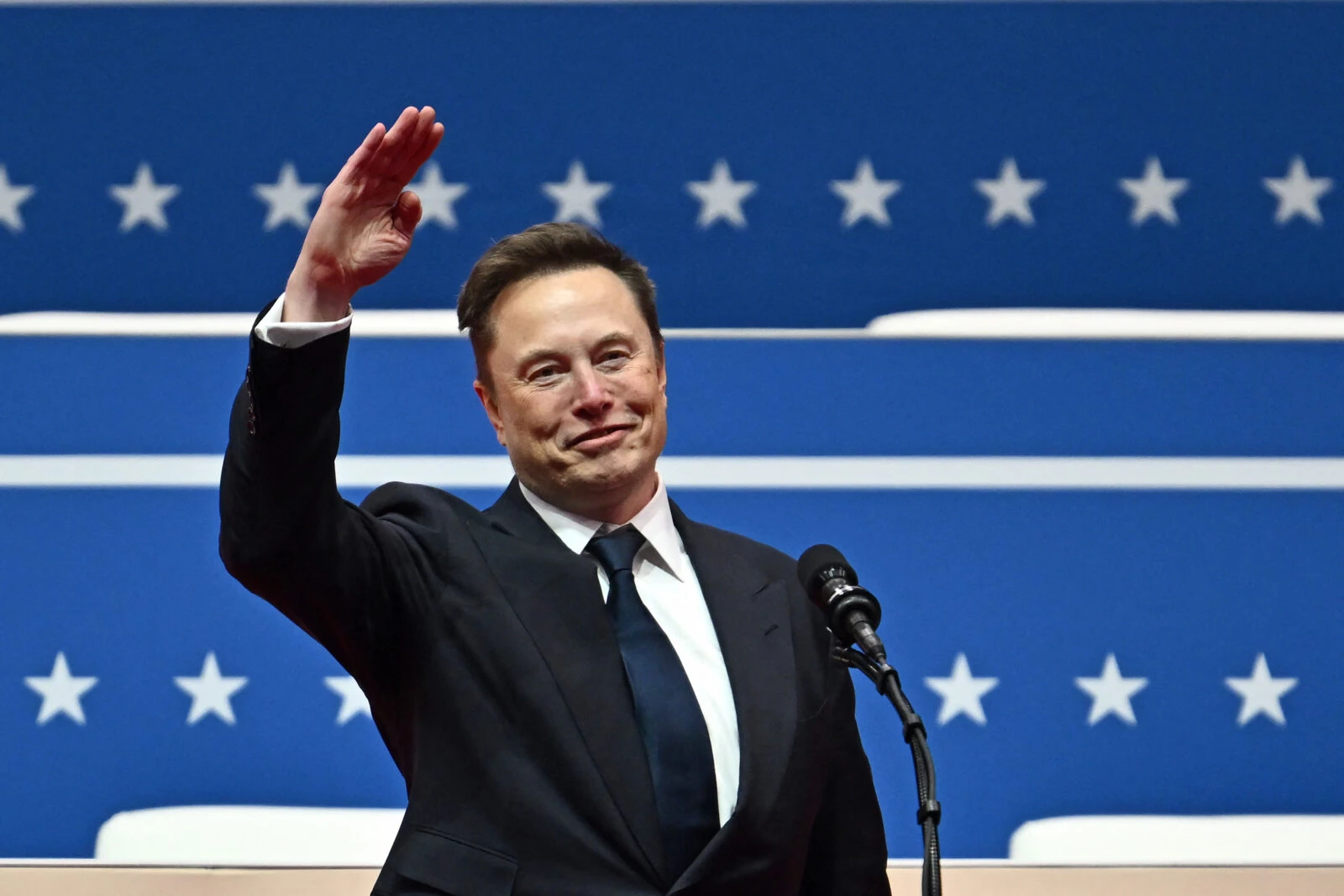‘Activist judges’ win big, Musk’s millions fail in Wisconsin
 Tesla and SpaceX CEO Elon Musk gestures as he speaks during the inaugural parade inside Capitol One Arena, in Washington, DC, on January 20, 2025. (Photo by ANGELA WEISS / AFP)
Tesla and SpaceX CEO Elon Musk gestures as he speaks during the inaugural parade inside Capitol One Arena, in Washington, DC, on January 20, 2025. (Photo by ANGELA WEISS / AFP)
In Wisconsin’s Supreme Court election this Wednesday, Democrat-backed Susan Crawford decisively defeated former Republican Attorney General Brad Schimel. This victory secured a liberal majority on the court for at least three years.
Crawford described her win as “a triumph against powerful special interests.” Addressing her supporters, she remarked, “As a child growing up in this state, I never imagined I’d be fighting for justice against the world’s richest man. But we won,” taking a direct jab at Elon Musk.
Both Musk and President Donald Trump had warned that a Crawford victory would compromise judicial impartiality. The high-profile billionaire, who now regularly engages in political discourse, has long railed against what he calls “activist judges.”
Musk reiterated this stance at an event in Wisconsin, alleging that activist judges were being weaponized to block conservative policies. Through organizations established during Trump’s tenure, Musk poured millions into efforts to sway Wisconsin voters toward Schimel. Meanwhile, Trump claimed that Crawford’s election would lead to changes in state voting laws that would disadvantage Republicans.
Despite these efforts, Trump and Musk suffered their first major setback in a critical battleground state just months after the presidential election, a loss with far-reaching implications.
Role of Supreme Courts
Wisconsin’s Supreme Court wields significant authority over crucial matters, including voting laws, redistricting, abortion rights, and public-sector union regulations. While judges are elected in a theoretically nonpartisan system, the process has become increasingly politicized. The outcome of this election was particularly consequential, as it determines the court’s ideological balance until 2028, directly shaping the state’s legal landscape.
Musk has long criticized judicial power, and now, his grievances apply to Wisconsin. If Trump or the federal government implements a policy affecting the state, the Wisconsin Supreme Court can strike it down as unconstitutional. For instance, if Trump were to impose restrictions on public-sector unions, the court could nullify them within Wisconsin. Similarly, federal rulings on voting procedures could be overturned or reinterpreted at the state level. While such decisions can be appealed to the U.S. Supreme Court, they often delay federal actions and create political ripple effects.

Court’s upcoming agenda
Crawford’s victory solidifies a liberal majority on the court, which is expected to rule on several pivotal issues, including abortion rights, election laws, union protections, and redistricting. She received strong backing from abortion rights advocates and public-sector unions, underscoring the high stakes of this election.
Given Wisconsin’s status as a crucial swing state in presidential elections, the court’s rulings could have nationwide repercussions. Republicans now warn that Crawford’s win will lead to legislative maps being redrawn in favor of Democrats.
Musk’s gamble
Musk and his affiliated groups spent over $21 million to defeat Crawford. Just two days before the election, he personally handed out million-dollar checks to two voters, sparking controversy.
In her victory speech, Crawford asserted that Wisconsin voters had sent a clear message: “Justice is not for sale, and courts cannot be bought.”
Voter turnout exceeded 52%, setting a new state record. Campaign expenditures neared $100 million, making this one of the most expensive judicial races in U.S. history. In response to the results, Musk posted on X (formerly Twitter): “The left’s long-term plan is to corrupt the judiciary.” This election alone saw half the spending of the most expensive judicial elections in American history.
Wisconsin Democratic Party Chair Ben Wikler warned, “If Elon Musk keeps winning elections, he’ll take this strategy nationwide.”
This election has reignited debates over the influence of money and power in the American judicial system. Calls to limit Musk’s political involvement are growing louder.
Importance of Wisconsin
Nationally, Donald Trump Jr. had campaigned in Wisconsin, calling Schimel’s race “one of the most critical battles in protecting the Republican project.” However, Democratic strength in the state appears to have increased despite these efforts.
Experts now suggest that Musk’s financial intervention may have backfired, with some voters perceiving his spending as an attempt to buy the election. Others argue that the backlash from public employees laid off due to Republican budget cuts drove them to the polls in support of Democrats.
The most significant takeaway isn’t just that Republicans lost control of Wisconsin’s legal system—it’s that Musk’s millions failed to make a difference. This raises questions about the future of the Trump-Musk alliance, a relationship defined by mutual benefit but also by potential friction.
If Trump concludes that Musk provides no electoral advantage, American politics could take an unexpected turn. Given recent attacks on Tesla vehicles and Musk’s deep entanglement in right-wing politics, even if the relationship doesn’t break down entirely, tensions between the two figures may escalate.



